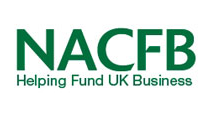Refurbishment Finance
Loans sizes range from £50K to £2m for terms of 3 to 24 Months. Rates are in the range of between 7% pa to 12% pa.
These loan are suitable for light refurbishments, heavy refurbishments and HMO conversions.
There are typically two ways of funding a project
1) 70% – 75% of purchase price and 100% build cost
If the total loan facility can be as high as 75% of gross development value (GDV).
Typical cost structure
– 2% lender arrangement fee added or deducted from the loan
– 0.95%pm interest
– No exit fee
– Interest added to the loan to a maximum 65 to 75% of GDV
– The build costs are drawn down in pre-agreed stages in arrears
– The lender will appoint a monitoring surveyor who will inspect the site at the end of each stage to approve the next stage drawdown. For some lenders the fee will be £2000 for the entire project and for others could be £300 to 1000 per visit. The costs are borne by you and are usually built into the loan facility.




 About Us
About Us